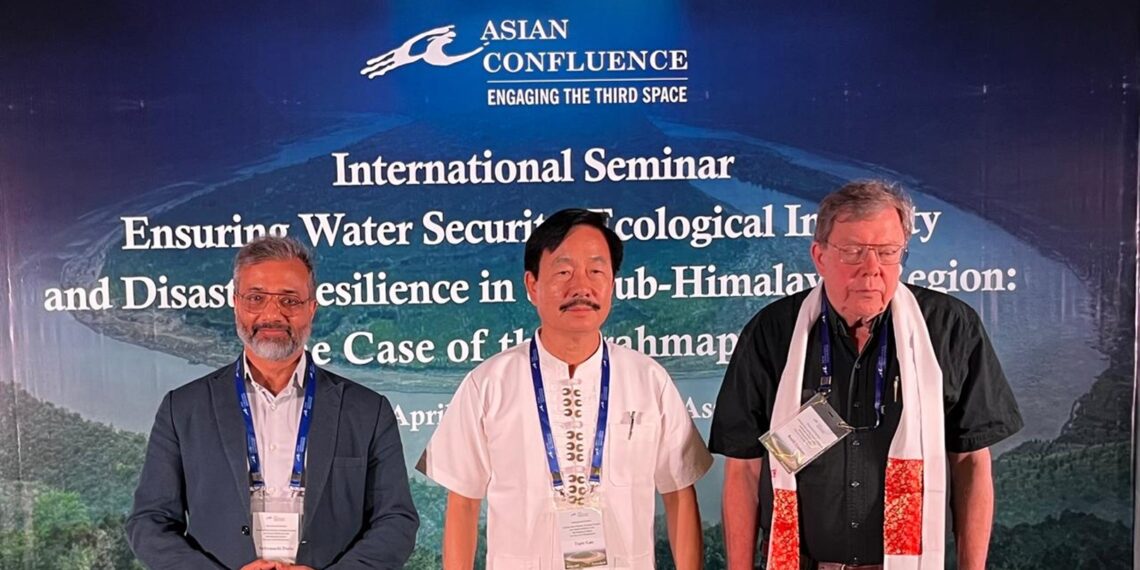Guwahati: Global experts and policymakers voiced concerns about China’s proposed “Great Bend Dam” on the Yarlung Tsangpo River, known as the Brahmaputra in India, during a seminar organised by the think tank Asian Confluence in Guwahati.
The event highlighted the potential environmental, geopolitical, and security challenges posed by the 60,000 MW mega-dam project in Tibet’s Medog County.
The seminar, titled “Ensuring Water Security, Ecological Integrity, and Disaster Resilience in the Sub-Himalayan Region: The Case of the Brahmaputra,” brought together leading voices to discuss the risks associated with the project.
Author and Tibetologist Claude Arpi expressed skepticism about Chinese President Xi Jinping’s climate pledges, describing the dam as part of China’s broader strategy to dominate regional hydropower and potentially divert the Yarlung Tsangpo’s waters to the Yellow River.
Arpi also emphasised the need for India to undertake independent scientific studies to counter the narrative and build international support against the project.
BJP MP Tapir Gao characterised the dam as a potential “water bomb” and drew parallels to the devastating floods of 2000 caused by a sudden release of water from a Chinese dam upstream.
Gao supported India’s plan to construct a dam on the Siang River in Arunachal Pradesh to mitigate downstream risks.
Noted Asian politics expert Bertil Linter traced China’s control of Tibet in the late 1950s to its strategic interest in the region’s water resources, citing the construction of 11 mega-dams on the Mekong River.
Linter called for India to pursue a water-sharing agreement with China to avert potential conflicts.
IIT Guwahati’s Dr. Anamika Baruah presented findings on changing precipitation patterns in the region, with predictions of more “dry days” downstream and increased “wet days” in Tibet due to dam constructions.
She stressed the need for collaborative studies with China to fully understand the dam’s implications.
ALSO READ: Shillong to celebrate Lou Majaw with rockumentary screening, live music
Brahmaputra Board Chairman Dr. Ranbir Singh warned that the proposed dam could transform the Brahmaputra from a water-surplus basin to a water-deficient one, urging a multipronged approach to address the issue.
The seminar, part of Asian Confluence’s ongoing efforts to promote regional water security, emphasized the urgency of building a unified response involving governmental agencies, civil society organisations, and academic institutions.
It also aligned with the think tank’s broader mission, reflected in its past hosting of the international NADI Dialogue in Guwahati.















